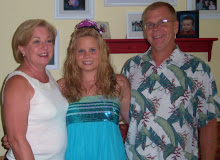One of the bigger projects these teams took on was a community medical clinic. But the work of the medical team begins long before arriving in Haiti. First a team is put together, this time we had 2 doctors, 3 nurses, and a physical therapist as medical professionals on the team. But they can't do it without the help of many non-medical volunteers.

Next medicine & supplies have to be collected and purchased. Then the packaging down-sized & re-packaged to be packed in team luggage. sounds simple, but this phase actually takes many weeks.

Once in Haiti, the meds have to be un-packed and sorted and counted into patient packs. It takes many hands counting out vitamins, antibiotics, fever meds, and a host of other meds so that the pharmacy can keep up with the 300+ patients each day, who will each receive 2-4 prescriptions.

Other supplies have to be sorted and boxed up for easy transport from storage in the orphanage building to the church where the clinic will be set up. Everybody is needed in the preparation for the clinic. The rooms have to be set up with tables, fans, chairs and equipment. Every clinic is slightly different as we have different medical personnel and learn more each time a clinic is held.


The morning begins with security staff in place for crowd control. They will man the gate, pass out numbers for each family to be seen, keep patients out of exam rooms until they are called, and help out at each of the stations- registration, vitals, entrance to exam rooms, and pharmacy.



Before the clinic can be set up more than 75 numbers have been given to families. That is about our max, but the security at the gate didn't get the word that we were finished fast enough, so almost 20 more numbers are given out.

Finally, all is in place and Pastor opens the clinic with songs of praise, prayer for patients and drs. alike, and instructions for orderliness. Volunteers & translators begin registering a family at a time, filling out a "dossier" or reg. form for each family member.


Then on to the next station where some triage takes place. Here each family member is weighed, has their temp and BP taken, and those deemed especially ill are sent in to see the dr, while the others again take a seat and wait for their number.



Drs. treat family after family only taking a short break at lunch time to grab a sandwich. Some patients are critically ill, suffering from severe malnutrition, malaria, pneumonia or other respiratory illness, or even HIV.




Most are just sick with fevers, sore throats & colds, skin infections, and more typical viruses or infections.




Some just need a loving touch and a kind, reassuring word. Our hearts are broken over the little on that test positive for HIV, and the boy that is suffering from extreme malnourishment. We see the cords tied around his ankles, knowing that his family believes he has an evil spirit and will not do what is necessary to save his life. But there are also times of rejoicing. Seeing the mom who was pregnant at the last clinic when she brought in a child who died of malnutrition. She returns with her healthy newborn, wanting reassurance that all is well with this child. She is doing everything she has been instructed to do and the baby is doing well.



Everyone is seen and receives what they need or referred to another clinic where they can receive further treatment.


The pharmacy staff are the ones that take the heat. Many of them are not professionals, but do their best to interpret the Rx the drs have ordered and fill them quickly. Some are mixing solutions, some squirting ointments in bottles, some writing names & dosage on bags, some organizing and keeping the drs informed what we have & what we're low on.






Then the families are called up one by one and translators give instructions on how to take the meds and the 1st dose is administered.









































No comments:
Post a Comment